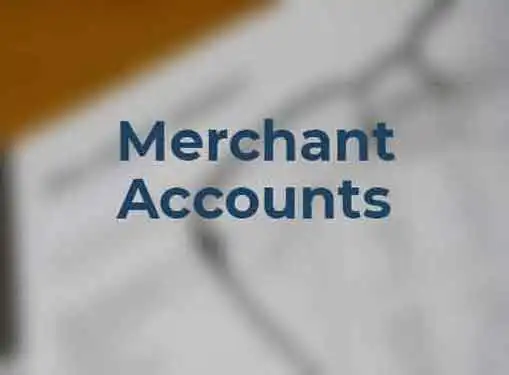Small Business Credit Cards
Merchant Accounts - Accepting Credit Cards at Your Business
Written by Chris Martin for Gaebler Ventures
One of the choices you must make as an entrepreneur is whether or not to accept credit cards as a form of payment. To help you resolve this issue, here are some myths associated with credit card processing.
Entrepreneurs are adept at finding ways to utilize their skills and expertise to make their mark on the marketplace. And they deserve to be well compensated for their efforts.

Much of the time, their customers would prefer to pay for entrepreneurs' products or services using a credit card. But in order to accept credit card payments, these entrepreneurs must have a merchant services account. This type of account facilitates the credit card transactions and routes payments into the bank account of the business owner.
Often, the technology, terms, and costs involved with credit card processing can be intimidating to a small business owner or novice entrepreneur. So it is imperative that they become familiar with the basics of merchant services.
Types of accounts
There are several different types of merchant accounts available.
Retail - the most common type of merchant account, where the entrepreneur and customer are involved in a face-to-face transaction.
Card Not Present - most appropriate when an order is placed using a telephone, fax machine, e-mail message, or mail order form.
Internet - for online businesses and service providers who want to accept payments via the web
Mobile - similar to a retail account, but provides software and infrastructure for entrepreneurs to accept credit card payments away from their office, storefront, or headquarters.
Seasonal - for businesses which only operate during certain months of the year.
Various middlemen
Once the proper type of merchant services account is selected, entrepreneurs should familiarize themselves with the different types of middlemen involved in the entire process of accepting credit card payments.
Credit card companies - supply the credit card accounts and set rules and regulations for their use
Banks - issue credit cards, choose which companies or individuals can have them, and set credit limits for the cards' usage
Acquirers - oversee communication between the bank and the entrepreneur
Platforms/networks - actual infrastructure over which credit card transactions are processed
Other middlemen - including independent sales organizations and member service providers who provide various other card-related services including equipment and software
Each of these middlemen will take a small portion of each credit card transaction.
Different costs
Perhaps most importantly, the entrepreneur should have a thorough understanding of the various costs associated with merchant services accounts. Here is a glossary of the different kinds of costs:
Periodic rate - This is the percentage of each credit card transaction which is paid to the merchant services provider. It can be anywhere from 1% to 5% depending on the agreement.
Qualified rate - Think of this as the lowest possible periodic rate that an entrepreneur can receive under a given merchant account contract. If the business owner fails to meet the criteria associated with this rate, the merchant services provider may increase the periodic rate on the account.
Transaction fee - a flat rate fee which is charged by the merchant account provider on every single transaction
Authorization fee - a flat rate fee which is charged by the merchant account provider whenever a credit card is authorized (even if the card is denied and no transaction takes place)
Interchange fee - a fee paid to the companies responsible for the communications networks over which credit card payments are processed
Monthly/Annual fees - fees which may be charged simply for the use of a merchant services account.
Each merchant account is different, and the fee structures and periodic rates can vary greatly. Entrepreneurs should closely examine the costs laid out in their merchant services agreement as well as the restrictions which must be met to avoid rate or fee hikes.
A seamless merchant account can improve efficiency and increase revenues for an entrepreneur. But an agreement which frequently results in extra fees or added inconvenience can help speed the demise of even the most well-run businesses.
Chris Martin has been a professional writer for the last seven years. He is interested in franchises and equity acquisition.
Share this article
Additional Resources for Entrepreneurs



Conversation Board
We greatly appreciate any advice you can provide on this topic. Please contribute your insights on this topic so others can benefit.